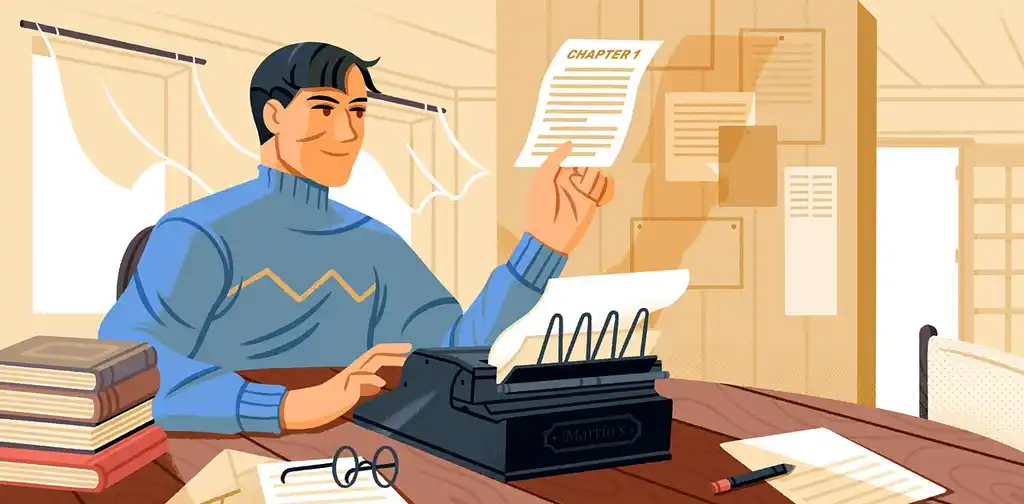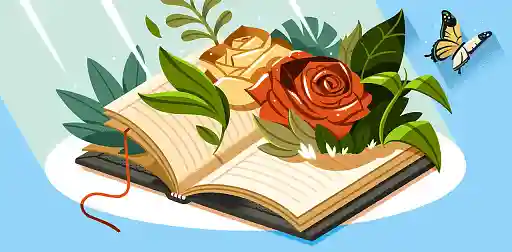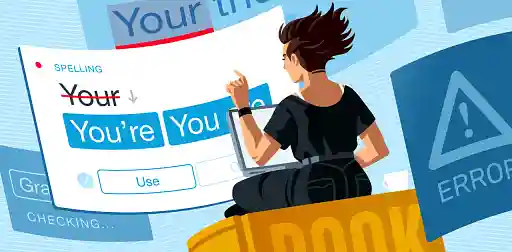Last updated on Aug 16, 2023
How to Start a Story: 10 Top Tips From Literary Editors
About the author
Reedsy's editorial team is a diverse group of industry experts devoted to helping authors write and publish beautiful books.
More about the Reedsy Editorial Team →Martin Cavannagh
Head of Content at Reedsy, Martin has spent over eight years helping writers turn their ambitions into reality. As a voice in the indie publishing space, he has written for a number of outlets and spoken at conferences, including the 2024 Writers Summit at the London Book Fair.
View profile →This post has been written with contributions from editors and authors including Tom Bromley, Fran Lebowitz, and Rebecca Heyman.
The opening lines of a story carry a lot of responsibility. They act as an invitation for someone who’s glanced at the first page of your book to either put it back down or keep reading.
To help us understand how bestselling authors open up their stories, we've asked for tips from ten of Reedsy's top professionals.
How to start a story:
- 1. Craft an unexpected story opening
- 2. Start with a compelling image
- 3. Create interest with immediate action
- 4. Begin the book with a short sentence
- 5. Pose a question for the reader
- 6. Engage a sense of curiosity
- 7. Build a convincing world and setting
- 8. Do something new with your writing
- 9. Create tension that has room to grow
- 10. Capture your readers’ attention
1. Craft an unexpected story opening
Some of the most memorable opening lines are ones that hook readers with something out of the ordinary. Literary editor Gareth Watkins often encourages writers to explore this in their own books.
"Think of the opening to Nineteen Eighty-Four, or Iain Banks’s, The Crow Road (It was the day my grandmother exploded). Of course, your opening doesn’t have to be as outrageous as these but always aim for the unusual.
"In other words: think of how people will expect the book to start, then take the plot in another direction."
Example: Nineteen Eighty-Four, George Orwell

Orwell immediately alerts the reader to the fact that we're not in a normal world by deploying a single strange fact at the end of Nineteen Eighty-Four's opening sentence
It was a bright cold day in April, and the clocks were striking thirteen.
However, not all books need to start with a twist. Sometimes, all you need is a single strong image.
2. Start with a compelling image
Many editors will tell you to avoid exposition — the dreaded info dump — at the start of your manuscript. Editor Harrison Demchick suggests one of the best ways to avoid this is to begin with an image.
"By focusing on sensory detail right at the start — sight, sound, taste, touch, smell — and by conveying a particular, defined setting, you can immediately absorb readers within your novel's tangible world.
"Context and background will come later, but a compelling image can be a fantastic hook."
Example: Fahrenheit 451, Ray Bradbury
The image of fire is central to Bradbury's dystopian classic. Appropriately enough, he opens his novel with a maelstrom of images comparing the fire to a snake and a symphony.
It was a special pleasure to see things eaten, to see things blackened and changed. With the brass nozzle in his fists, with this great python spitting its venomous kerosene upon the world, the blood pounded in his head, and his hands were the hands of some amazing conductor playing all the symphonies of blazing and burning to bring down the tatters and charcoal ruins of history.
Starting with an image requires a deft hand from the writer. This image must be compelling enough to make the reader continue turning the pages. A simpler alternative may be to throw readers into the middle of the story.
3. Create interest with immediate action
Novels that open in medias res (Latin for "in the midst of action") are often really effective at immediately grabbing the reader and establishing stakes and tension.
However, editor Jeanette Shaw warns that readers can become untethered without context and a central character. "If you go this route, you must be sure your opening action is compelling enough that the reader is prepared to wait for character setup later."
Example: Lord of the Flies, William Golding
This classic novel starts with a scene of young boys living on a deserted island with no adults in sight. Only later do we learn how they got there in the first place.
The boy with fair hair lowered himself down the last few feet of rock and began to pick his way toward the lagoon. Though he had taken off his school sweater and trailed it now from one hand, his grey shirt stuck to him and his hair was plastered to his forehead.
PRO-TIP: Want to find out which famous author you write like? Take our 1-minute quiz below!
🖊️
Which famous author do you write like?
Find out which literary luminary is your stylistic soulmate. Takes one minute!
4. Begin the book with a short sentence

As Polonius tells young Hamlet, brevity is the soul of wit. But for editor and literary agent Fran Lebowitz (who has represented the Bridgerton novels amongst other bestsellers), being frugal with your opening sentence can also intrigue a reader and force them to lean in: "Start with something sparse that flicks on our curiosity, above all."
Example: The Hobbit, J.R.R. Tolkien
For a man who's known for writing lengthy tomes, Tolkien opens up his novel, The Hobbit, with a simple and matter-of-fact sentence that introduces something readers had never encountered before: a hobbit.
“In a hole in the ground there lived a hobbit.”

FREE COURSE
How to Write a Novel
Author and ghostwriter Tom Bromley will guide you from page 1 to the finish line.
But sometimes, a simple question can be just as powerful as a statement.
5. Pose a question for the reader

"The reader should be looking for an answer," says Nathan Connolly, an editor and the directing publisher of Dead Ink Books.
"The opening to your novel should be a question that can only be answered by reading on. This doesn't need to be literal, or overt, it can even be poetic, or abstract, but there must be a wound that can only be healed by reading on."
Example: The Bell Jar, Sylvia Plath
While the first line of Plath's only novel doesn't end with a question mark, it certainly poses a few mysteries.
It was a queer, sultry summer, the summer they electrocuted the Rosenbergs, and I didn't know what I was doing in New York.
What was queer and sultry about this summer? How does the narrator's story relate to the execution of Julius and Ethel Rosenberg? And does she actually not know why she's in the Big Apple? The only way to find out is to read on...
Meet the top book editors on Reedsy
Jenny R.
Available to hire
13 years editing and proofreading, specializing in romance in multiple sub-genres, for everything from short novellas to 100K+ novels.
Alice Y.
Available to hire
Former Commissioning Editor at Penguin Random House with 11 years' publishing experience working across bookclub and literary fiction.
Laura S.
Available to hire
Editor and published author (Penguin Random House, Simon and Schuster) with over a decade of experience. Expert in novel and query edits.
And speaking of unanswered questions, the next tip digs deeper into this idea of intriguing openings.
6. Engage a sense of curiosity
For in the experience of editor Britanie Wilson, the most successful beginnings have the magnetic effect of appealing to an emotion that all readers possess: curiosity.
"Make them immediately ask of your characters: What is this place? Why are they here? What are they doing? Who is involved? Where is this going?
"If you can pique your readers' curiosity from the very first sentence, you can will them to keep reading before they even know they like your book."
Example: "Royal Beatings", Alice Munro
The first story in Munro's 1978 short story collection, Who Do You Think You Are? gives its readers an unusual phrase that instantly piques their curiosity.
Royal Beating. That was Flo's promise. You are going to get one Royal Beating.
As with the Orwell opening, the reader is presented with an unusual turn of phrase repeated several times — including in the title. By the time we're just 15-words deep into the story, we have a burning question: what is a Royal Beating?
While creating curiosity and mystery is powerful, it's important that the start of your book isn't entirely cryptic. Your opening must sustain your readers' interest in some way if you are to keep them reading through to chapter two, and reveal more and more information in the plot points to come.
Pro tip: Starting your writing with dialogue is considered a no-no by some, but can actually be a great way of achieving this effect.
7. Build a convincing world and setting
"To give readers the confidence to continue reading a story they've just started, it's important to give them enough detail to know where and when a story takes place," says author and ghostwriter Tom Bromley.
"Sometimes when stories begin, there's a danger that the scenes are a little bit 'floating' — where the reader isn't given enough information to visualize what's going on. Details of location and time, when provided with enough specificity, will ground the reader and make them feel secure."
Example: The Corrections, Jonathan Franzen
This novel, set in the American Midwest, opens by instantly grounding the reader in visuals related to the when and where of the story.
The madness of an autumn prairie cold front coming through. You could feel it: something terrible was going to happen. The sun low in the sky, a minor light, a cooling star. Gust after gust of disorder. Trees restless, temperatures falling, the whole northern religion of things coming to an end. No children in the yards here. Shadows lengthened on yellowing zoysia. Red oaks and pin oaks and swamp white oaks rained acorns on houses with no mortgage. Storm windows shuddered in the empty bedrooms. And the drone and hiccup of a clothes dryer, the nasal contention of a leaf blower, the ripening of local apples in a paper bag, the smell of the gasoline with which Alfred Lambert had cleaned the paintbrush from his morning painting of the wicker love seat.
If you were to think of this opening scene in a cinematic sense, it reads like a slow montage that cuts between different images that set up the tone and atmosphere of the piece. Note how the first sentence describes the wind — a classic piece of literary imagery that almost always signifies the same thing: that change is a'coming.
8. Do something new with your writing
Avoiding clichés is something that should always be avoided. And in the experience of Thalia Suzuma, and editor who has worked with authors ranging from David Baldacci to Ken Follett, clichés can be avoided with some simple, unusual choices:
"Consider these two lines:
1) I'm sitting writing this at my desk.
2) I write this sitting in the kitchen sink.
"Which line makes you want to read on? I'd hazard a guess that it's probably the sentence about being perched at a sink — the opening line to one of my favorite novels, I Capture the Castle by Dodie Smith.
"Say something in your first few sentences that hasn't often been said before! A brief line laden with foreboding and heavy with what has not been said often works well, too."
Example: Jane Eyre, Charlotte Brontë
Opening a book by talking about the weather is just about as clichéd as things come. (It was a dark and stormy night...) But in the opening paragraph of Jane Eyre, we are presented with an image of cold weather — but filtered through the eyes of its title character.
There was no possibility of taking a walk that day.
More importantly than discovering the weather in chapter one, we learn something about the narrator: that she is a woman of absolutes.
Again, the weather is used to create a sense of foreboding — a perfect segue into our next tip.
9. Create tension that has room to grow
Openings should be intense, but for editor Rebecca Heyman, that doesn’t necessarily mean loud or explosive.
"So many authors are keen to start with a literal bang — something going up in flames, or a car accident, or some other catastrophe. But recall that even a smoldering fire can burn your hand; draw us in like moths to the flame, but don’t let the bonfire rage so fierce we can’t get close."
Example: All The Light We Cannot See, Anthony Doerr
Remember what we said about winds signifying change? In the opening chapter of Anthony Doerr's novel set around the Second World War, we open with a description of the wind, bringing with it a literal message of change:
At dusk they pour from the sky. They blow across the ramparts, turn cartwheels over rooftops, flutter into the ravines between houses. Entire streets swirl with them, flashing white against the cobbles. Urgent message to the inhabitants of this town, they say. Depart immediately to open country.
This image we're presented with is almost playful (turning cartwheels, fluttering into ravines), making the message the pamphlets bear even more insidious.
For the final tip of this post, we give you what is perhaps the cardinal rule of starting a story...
10. Capture your readers’ attention
You want your reader to be swept up in the story— for its entirety, but especially at the beginning, says editor Anne McPeak:
"This is your chance to intoxicate your reader and convince them that they can’t not read on. This doesn’t mean your story needs drama, or fireworks, or shocking material; what your story really needs is close attention to language, tone, and pacing.
"Dazzle your reader from the start, and they will willingly take your hand for the ride."
Example: Fortress of Solitude, Jonathan Lethem
Centering on the lives of two friends in Brooklyn and spanning decades, Lethem's novel opens with an everyday image — of girls rollerskating on the sidewalk — and filters it through the eyes of a narrator, who interprets the scene in quite an arresting fashion that's bound to capture the reader's attention:
Like a match struck in a darkened room:
Two white girls in flannel nightgowns and red vinyl roller skates with white laces, tracing tentative circles on a cracked blue slate sidewalk at seven o'clock on an evening in July.
The girls murmured rhymes, were murmured rhymes, their gauzy, sky-pink hair streaming like it had never once been cut.
Establishing best practices for starting a story can be tricky because, as Nathan Connolly says, “Fiction should, by nature, seek to defy, redefine or expand beyond rules." It should not be an author’s goal to emulate the words or tastes of another person while writing a novel.
However, many well-loved novels share a thread of commonality when it comes to their first few lines — such as a question, a brief to-the-point line, or in the middle of action. While there’s no hard rule for what works, these are guidelines you can follow when determining how to hook readers down your story’s path.









26 responses
Paynes says:
04/01/2017 – 21:13
"Years ago, down in the Amazon, Santiago set me up. He said, 'Lives are stories told over and over. The good ones keep getting better. Think about that, Daniel. And while you're at it, think about thinking. We learn best by thinking, just as fish breathe by drinking.' He said this very matter-of-factly. Then he asked me, 'Don't they?' He asked me this when he was about to die." "Santiago and the Drinking Party" by Clay Morgan That's one of my favorite beginnings.
↪️ Reedsy replied:
09/01/2017 – 16:48
This is really great because I actually did sit and think for a few moments about the line "lives are stories told over and over." So mission accomplished! Thanks for the contribution, Paynes!
Nathan Van Coops says:
06/01/2017 – 14:26
"There was a boy called Eustace Clarence Scrubb, and he almost deserved it." --C.S. Lewis- The Voyage of the Dawn Treader.
↪️ Reedsy replied:
06/01/2017 – 14:36
Haha, that's a good one, Nathan!
Tripehound says:
07/01/2017 – 12:33
The Dodie Smith sentence - she's not sitting at the sink. She's sitting in the sink.
↪️ Reedsy replied:
07/01/2017 – 16:56
Ah, good catch, thanks! We've edited accordingly.
RanaShubair says:
07/01/2017 – 16:16
The ideas are great. I find number 1 and number 9 most appealing to me. And thanks for the book examples you included- this helped me look them up and put them on my reading list.
↪️ Reedsy replied:
07/01/2017 – 16:57
Glad you like it, Rana!
Carol Pearson says:
08/01/2017 – 20:01
"There are gods in Alabama: Jack Daniel's, high school quarterbacks, trucks, big tits, and also Jesus. I left one back there myself, back in Possett. I kicked it under the kudzu and left it to the roaches." Gods in Alabama by Joshilyn Jackson. Stunning.
↪️ Reedsy replied:
09/01/2017 – 16:45
That is definitely unique — it's not "once upon a time", that's for sure :) Thanks for the comment Carol!
↪️ Carol Pearson replied:
09/01/2017 – 17:14
ha! no indeed. And the book delivered, too. Compelling from start to finish. Great read!
Rock Higgins says:
17/01/2017 – 17:08
"I am doomed to remember a boy with a wrecked voice – not because of his voice, or because he was the smallest person I ever knew, or even because he was the instrument of my mother’s death, but because he is the reason I believe in God; I am a Christian because of Owen Meany." John Irving, A Prayer for Owen Meany It is the whole 600+ page novel in a sentence, that takes 600+ pages to unpack.
↪️ Reedsy replied:
17/01/2017 – 17:18
Wow, great one, Rock! You know an author really knows their story when they're able to condense 600 pages of it into a single sentence. Thanks for the quote :)
polfilmblog says:
24/02/2017 – 22:08
Venomous python? Really? "with this great python spitting its venomous kerosene upon the world," The only thing I get from this opening is that the author royally fucked it up. Pythons are constrictors of course. Most everyone knows that.
↪️ Elizabeth replied:
19/11/2019 – 08:01
Well, shoot! And Mr. Bradbury seemed to have such promise. I'm sure if he was still among the living you could teach him a thing or two. About snakes, anyway.
Dennis Fleming says:
24/07/2017 – 21:52
"Not wanting to arouse Vishnu in case he hadn't died yet, Mrs. Asrani tiptoed down to the third step above the landing on which he lived, teakettle in hand." The Death of Vishnu by Manil Suri
Astoria Eincaster says:
17/10/2017 – 19:57
I don't see anything strange and unexpected with 1984's opening sentence. Thirteen o'clock is basically 1 pm. In Europe the clock goes from 0 to 23. So 1:15 pm for example will be 13:15, 3:45 pm will be 15:45, while 4 am would be simply 4 o'clock. I don't know about other continents, but I'm sure about Europe, as I live there. And where does 1984 take part? In London, you ignorant Americans! Just stop citing 1984 as an example of an unexpected opening. Seriously, this is not the first post about types of book openings where I see 1984 mentioned. Its first sentence is not and it wasn't supposed to be strange, although some ignorant hacks still think it is.
↪️ Reedsy replied:
17/10/2017 – 20:06
Analog clocks do not generally include the number "13." So while it is not strange for it to be thirteen o'clock, it remains a strange image for the hand of a clock to "strike thirteen," and I don't believe anyone aside from George Orwell ever said or wrote "the clock strikes thirteen." In 1984, the clock "strikes thirteen", as we can later surmise, because this is a military state and they use military time. So this opening is not only unexpected, it sets the mood for the rest of the book. Ah, and most of Reedsy's team is based in Europe, by the way, so the "ignorant American" argument doesn't really stand with us — sorry!
↪️ 4kidsandacat replied:
24/07/2018 – 11:09
Keep in mind, Orwell wrote this story in 1948, long before digital clocks were in common use. Thirteen o'clock doesn't sound strange today, but it may well have at the time.
↪️ Doug McNett replied:
19/04/2020 – 13:32
I completely agree with you. I am American, but when I first read those lines I thought nothing of it as to me they were referring to military time,
Diane Callahan says:
30/01/2018 – 16:11
Loved this article! I found it through your Novel Revision course. I'm pleased to see that your editors picked many of the same first lines I discussed in my YouTube video on the topic: https://www.youtube.com/watch?v=bm9trk8xRpg&t=2s Patrick Ness’s "The Knife of Never Letting Go" hooked me right away by opening with a strong narrative voice and humor: “The first thing you find out when yer dog learns to talk is that dogs don’t got nothing much to say.”
Evelyn Sinclair says:
11/03/2018 – 16:42
"Master was a little crazy: he had spent too many years reding books overseas, talked to himself in his office,did not always return greetings and had too much hair." Opening sentence from 'Half a Yellow Sun' definitely hooked me in to this story.
Candace says:
03/08/2019 – 01:56
Yeah. I know. You guys are going to read about how I died in agony, and you're going to be like, "Wow! That sounds cool, Magnus! Can I die in agony too?" - Magnus Chase and the Gods of Asgard: The Sword of Summer by Rick Riordan One of my favorite opening lines of all time.
↪️ Yvonne replied:
08/08/2019 – 02:01
That is indeed an awesome line! Thanks so much for the quote (and the book rec).
Alice says:
19/09/2019 – 19:20
My favorite line is from Charles Dickens "a Tale of two Cities" It was the best of times, it was the worst of times.
Elizabeth says:
19/11/2019 – 08:18
“We were somewhere around Barstow on the edge of the desert when the drugs began to take hold.” "Fear and Loathing in Las Vegas" by Hunter S Thompson. Okay, technically it's a classic HST hybrid - part semi-autobiography and part novel. But still one of the greatest beginnings I've ever had the pleasure of reading.